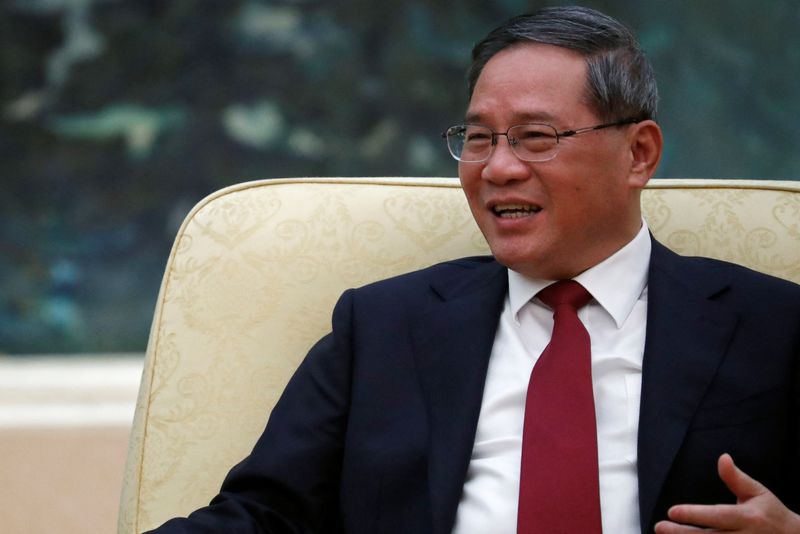BEIJING (Reuters) - China will strengthen the coordination of various policies to boost growth and meet this year's economic target, according to a cabinet meeting cited by state media on Wednesday.
The meeting held on Wednesday comes amid China's mounting economic woes with a prolonged property crisis, deflationary pressure and slower growth in retail sales and industrial output.
Tuesday's grim data has raised calls from China watchers for authorities to roll out major fiscal stimulus to get the economy back on more solid footing.
Without giving details, the cabinet meeting chaired by premier Li Qiang said China would continue to introduce policies for boosting consumption and promoting investment.
Economists see a downside trend for the world's second-biggest economy. Barclays (LON:BARC) was among a number of global banks to cut its forecasts for China's 2023 growth after weak activity data.
Beijing pledged to boost the household consumption share of GDP to prop up economic growth as debt-fuelled investment in infrastructure and property has peaked and exports slumped due to weakening global demand.
However, despite a slew of policy announcements about how to boost growth, without direct stimulus such as consumer vouchers and tax cuts, Chinese households have continued to build up savings and reduce borrowing - meaning demand remains sluggish.

"Prolonged weakness in property construction will add to destocking pressures in the industrial space and depress consumption demand as well," said Tao Wang, economist at UBS Investment Bank.
"In such a case, economic momentum may stay subdued in the rest of the year and China may miss this year's growth target of around 5%."